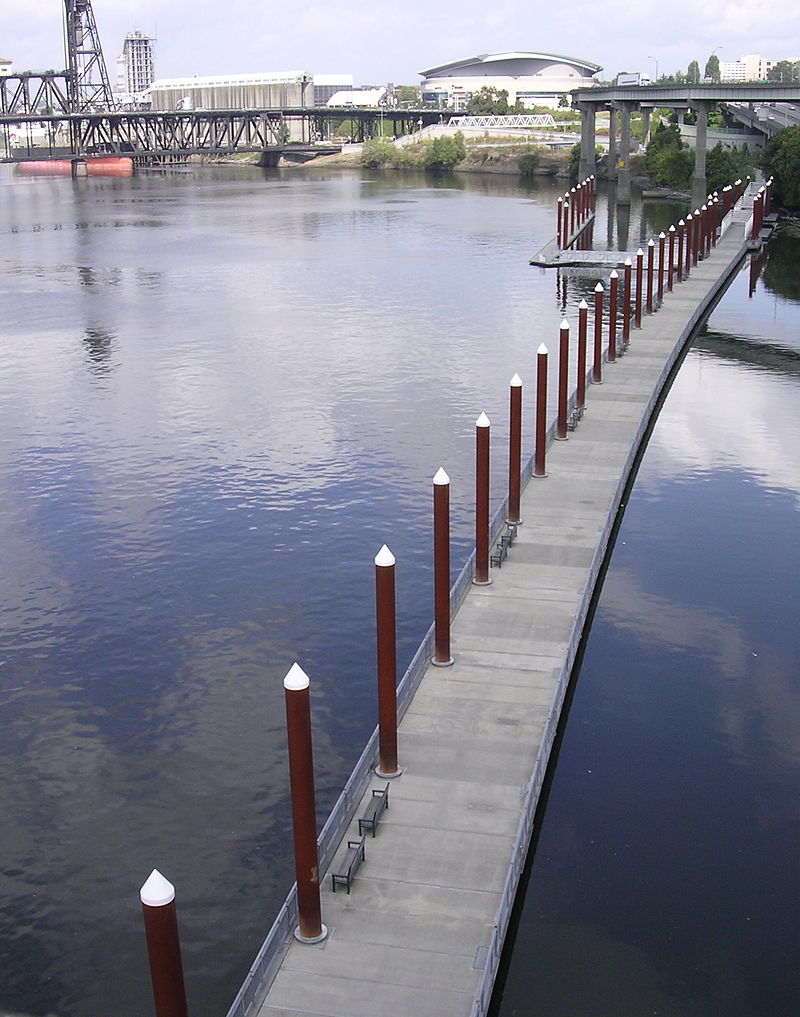Chris Thomas and Cynthia Newton presented their bicycle legal clinic entitled “Moving Toward an Active Healthy Community” at Portland’s Alta Planning + Design on April 5. The clinic covered basic legal principles of Oregon law applicable to bicycles (and pedestrians), and guidelines and best practices for roadway riding (on streets with and without bike lanes), crosswalk and bike cross usage, and sidewalk riding, plus how best to address hazardous situations involving navigating around buses and large vehicles and car doors. Chris and Cynthia also shared tips about how auto insurance comes into play when cyclists are injured in a collision with a motor vehicle and how to handle crash and claims situations. The clinic included plenty of back-and-forth with Alta staff, many of whom work daily to design bike- and pedestrian-friendly urban environments. Check out their work here: https://altaplanning.com/. To schedule a bike clinic at your workplace, contact Chris [cthomas@tcnf.legal] or Cynthia [cnewton@tcnf.legal].
Category Archives: Chris Thomas
Cynthia Newton And Chris Thomas Present E-Bike And Scooter Law To Local Attorney Group
On Friday, October 26th, Cynthia Newton and Chris Thomas presented a seminar on Oregon electric bicycle and scooter law to a group of fellow trial attorneys. Their presentation, entitled “Shock Me Like an Electric Wheel: Oregon E-Bike and Scooter Law,” covered the rules of the road governing e-bike and scooter use as well as what insurance coverage may be available following a collision. They presented as part of the Oregon Trial Lawyers Association’s annual all-day continuing legal education seminar covering topics relevant to motor vehicle collision cases. Cynthia and Chris appreciate the role that electric assisted vehicles can play in Portland’s transportation future, and were honored to speak on this important topic.
Ray and Chris Thomas Join Ruckus Composites for Podcast on Bicycle Law
Ruckus Composites is a Portland-based company that specializes in repair of carbon fiber bicycles. Ruckus’ Shawn Small and Dan Steinle frequently record podcasts on topics related to bicycles and carbon fiber, known as the Fiber Side Chats. Shawn and Dan recently invited Ray and Chris Thomas of Thomas, Coon, Newton & Frost to their studio to discuss bicycle law, including rules of the road, how Oregon compares to other states, and how insurance coverage can protect bicyclists.
The episode is here. We hope you enjoy it!

E-Bikes And E-Scooters On The Springwater, Esplanade And Other Portland Parks
The recent prevalence of e-bikes on Portland streets, and the even more recent influx of e-scooters, has increased the public’s curiosity about state and local law governing the devices. Many Portlanders now know that e-bikes and e-scooters are prohibited on sidewalks statewide, users of both must be at least 16 years old, and e-scooter users must wear helmets, but not e-bike riders. (For a comprehensive look at Oregon e-bike law, see our firm’s legal guide here.) A lesser known provision of Portland city code came to my attention recently in an article by the Oregonian’s Lizzy Acker, which included the following statement:
I emailed Portland Bureau of Transportation spokesperson John Brady on Friday to ask him some question about the scooters and he informed me that city code does not allow scooters in city parks, including the esplanade and the Springwater Corridor, so I can’t recommend you take this route home.
Cynthia Newton’s Back to School Road Safety Tips
TCNF Partner Cynthia Newton spoke with KATU traffic reporter Hannah Olsen about getting your kids to school safely by bike. In this clip, aired in Portland on August 27th, 2018, Cynthia explains her five rules for safe bike travel to school.
1. Find a good route from where you live to your school. That way you can follow the same route every day. No fuss. No rush.
2. You can ride on the sidewalk everywhere in PDX except downtown. Remember to slow to a walking speed when crossing driveways and entering crosswalks so cars have more time to see you.
3. When crossing the street, always use a crosswalk. There is a crosswalk at every corner, even if there is no paint on the roadway. Enter at walking speed so cars have more time to see you.
4. Kids under 16 are required to wear a helmet. Kids are more likely to wear a helmet if their parent does.
5. Wear white and use a light. Lights—a white one in front and a red one in rear—are required in limited visibility conditions, but wearing white or using a light anytime makes you more visible. Drivers don’t hit cyclists they can see.
KATU’s article about this conversation with Cynthia, including some additional advice from TCNF attorney Chris Thomas, can be found here.
